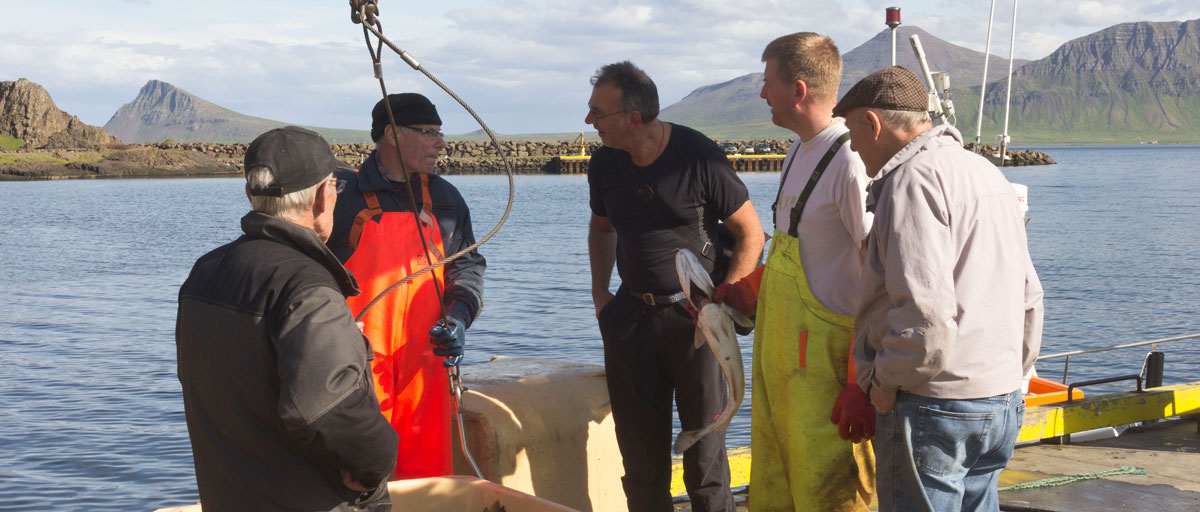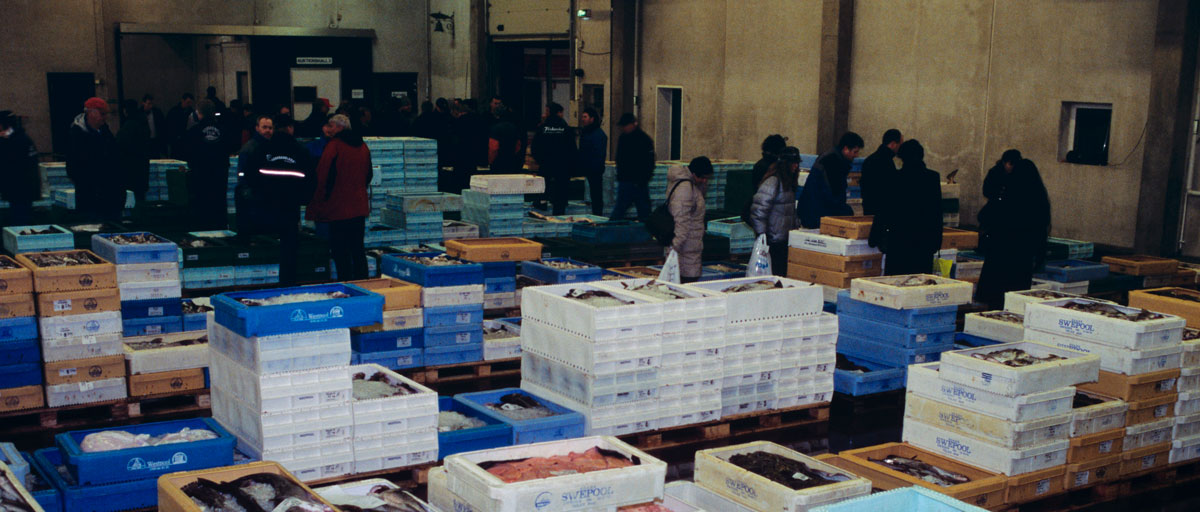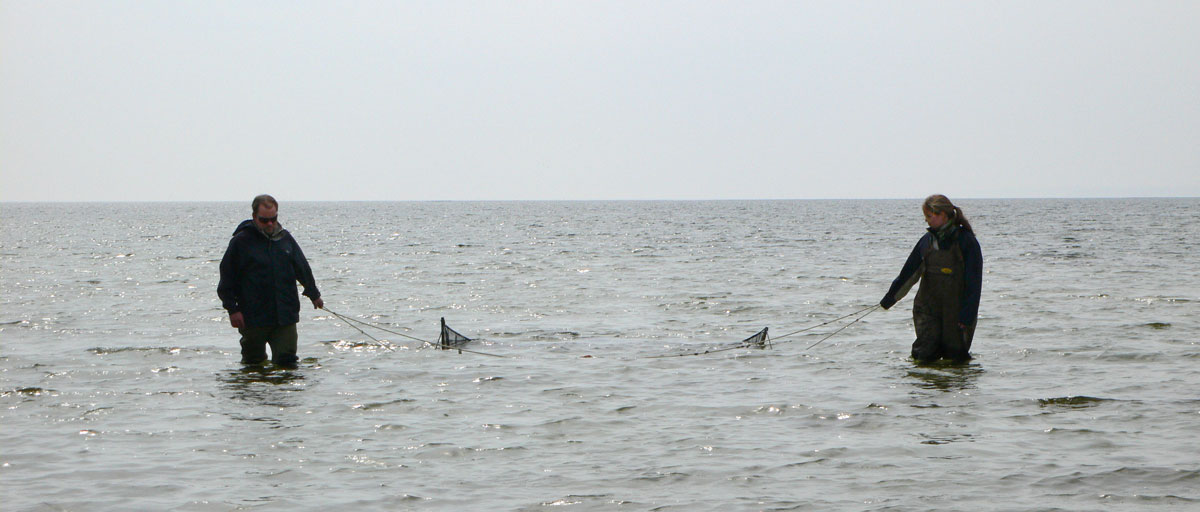
Study finds that while a diversification of fishing strategies among Baltic Sea fishers improved adaptability, it also made the region more vulnerable to poor management. Photo: F. Thorsteinsson/Azote
Bildtext får vara max två rader text. Hela texten ska högerjusteras om den bara ska innehålla fotobyline! Photo: B. Christensen/Azote
FISHERIES MANAGEMENT
The whole management puzzle
Why scientists need to pay more attention to the behaviour and interactions of resource users
- New study in Ecology and Society concludes that changes in the use of fishing strategies have made Baltic Sea fishers more adaptable to ecological changes, but could also increase overfishing
- Study uses social-ecological fisheries networks to evaluate changes in Swedish fishers’ harvesting strategies between 1996 and 2009
- Results highlight why understanding harvesting behaviour is integral to fisheries management
When managing natural resources, it is important to consider the resource itself. How much is a sustainable harvest? What are the predator-prey interactions? It is also important to understand the resource user and their behaviour. What are the rules governing this resource? Under the limits set by these rules, how are resource users adapting to environmental and societal change? These many interactions between the resource and the users are not well understood, despite being an integral part of the natural resource management puzzle.
In a study recently published in Ecology and Society, former centre PhD students Johanna Yletyinen and Jonas Hentati-Sundberg together with centre researchers Thorsten Blenckner and Örjan Bodin, examine resource users’ behaviour and their ecological dependency on the Baltic Sea in relation to adaptability to future fish stock fluctuations. They do so by looking at fishing strategy diversification among Swedish Baltic Sea fishers from 1996 to 2009, since ability to change harvesting strategies commonly increases resource users' capacity to adapt to change.
As Yletyinen explains, “Sustainable fisheries management plays a critical role in supporting healthy marine ecosystems and the livelihoods of millions of people. An emerging view on fisheries management emphasizes the need to manage fisheries as complex social-ecological systems. Yet, our understanding of the outcomes of fisheries management from a social-ecological perspective is limited in comparison to that provided by either the biophysical or the social perspective alone.”
Fisheries management needs to account for heterogeneous human responses to management and ecosystem change in order to maintain adaptability, and to ensure sustainable and resilient fisheries development in future
Johanna Yletyinen, lead author
Changing strategies changes ways
Using the case of Swedish Baltic Sea fisheries as an example, the authors built an integrated social-ecological network to compare changes between 1996 and 2009. The authors then examined two parts of this network: social and intermediate social-ecological.
They found that fishers’ social network reflected their harvesting behaviour, pointing to a decrease in the combination of harvesting strategies used. This was largely driven by changes in regulations, fish prices and fish stocks. However, among the combinations of strategies typically in use, a higher number of fishers were frequently changing strategies in 2009, and the fishers were more equally distributed among different harvesting strategies.
Furthermore, the social-ecological connectivity showed that in 1996, change in harvesting strategy frequently did not include a change in target species. In 2009, fishers were increasingly able (or willing) to change their target species. These changes, at best, allow releasing pressure from a depleted species and moving to healthier fish stocks. Under poor management, this flexibility could allow overfishing of several species in high demand.
Yet, despite improved adaptability, Swedish Baltic fishers are still indirectly ecologically dependent: their target species are commonly connected as predator - prey species.
With respect to these findings, co-author Bodin adds that, “Identifying in this way which social-ecological system component is important for adaptability can guide management toward more sustainable harvesting.”
A social-ecological system understanding
Understanding the complex relationships between resources, users, and behaviour change over time is crucial in resource management. As Blenckner explains, “Our study clearly demonstrates that examining how fishers operate, and how the social and ecological systems influence each other, contributes to increased understanding about how the entire social-ecological fishery system works."
Hentati-Sundberg concludes that "Our findings highlight the conceptual importance of human behavior in relation to fisheries management. Scientists need to pay more attention to the behavior and interactions of resource users." With that in mind, lead author Johanna Yletyinen emphasizes the importance of a more holistic understanding of sustainable resource management: "Fisheries management needs to also account for heterogeneous human responses to management and ecosystem change in order to maintain adaptability, and to ensure sustainable and resilient fisheries development in future.”
METHODOLOGY
To analyze how diversity in fishing strategies interacts with fisheries management and the marine ecosystem, the authors constructed a network using data on Swedish fishers’ strategies and fisheries catches in 1996 and 2009, and food web interactions. The authors build on the findings of two previous studies on the harvesting behaviour of Swedish fishers; diversity in fishers' behaviour and increased specialization.
The authors then analyzed two structural network properties: (1) compartmentalization, which identifies subgroups within a network; and (2) social-ecological motifs, network building blocks that describe relationships between resources and users.
Yletyinen, J., J. Hentati-Sundberg, T. Blenckner, and Ö. Bodin. 2018. Fishing strategy diversification and fishers' ecological dependency. Ecology and Society 23(3):28.
https://doi.org/10.5751/ES-10211-230328
Thorsten Blenckner is a researcher focusing on whole ecosystem processes and multiple stressors, and ecosystem complexity, particularly in the Baltic Sea.
Örjan Bodin is a researcher that uses and develops theories and models of coupled social-ecological systems.








